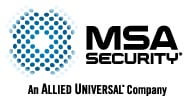When making a determination or developing a business case for utilizing outside consultants, your organization should conduct an internal capabilities assessment. Some of the following considerations should be assessed:
- Do you, as an organization possess the requisite knowledge, skills and abilities to successfully design and implement a comprehensive physical protection system?
- If internal assets are to be utilized what portion of their time will have to be dedicated to management of the project and development of deliverables? What impact will the dedication of time to this project have on the asset’s current responsibilities?
- Have your internal assets managed projects of similar size and scope?
- Is there a question of objectivity from Senior Management (outside of security) concerning security recommendations resulting in possible expansion of roles, responsibilities or budget of the security department?
Hiring an outside consultant for security planning services could provide significant benefits in terms of developing the value proposition for security. Some of the following items may be utilized in determining the cost – benefit ratio for engaging the services of a consulting firm for the design & build of a security system:
- Utilizing consultants will allow your organization to benefit from experiences developed by the consultants through providing services for similar organizations thus allowing for the application of benchmarks and industry best practices with less research and networking required than if attempted internally.
- Consultants, by their nature, are problem solvers who are experienced in thinking “outside of the box” to identify effective and cost efficient solutions to an organization’s security challenges.
- Consultants provide objectivity to the planning process as a whole due to their inherent ability to view programs, in their entirety, from the outside, without perceived bias towards previously implemented programs, solutions or processes. This objectivity often lends more credibility to requests for program implementation, particularly from a Senior Management standpoint when requesting funding for security related projects and investments.
- Consultants are typically more efficient and well versed in the process for approaching security projects than internal assets because that is what consultants do day-in and day-out. Assessments, reports, designs and project management are regular deliverables in the consulting world while in organizational security they are rarely required. As with any activity, practice makes perfect.
Utilizing consultants provides financial benefits to an organization through a variety of means including but not limited to:
- Mistake and Change Order avoidance – mistakes and change orders can quickly accelerate project costs beyond budgeted amounts if the foundation for the design is not complete or has inaccuracies. Consultants reduce omissions and errors.
- Short-term Engagements – Consulting agreements are short-term by their nature. There are no recruiting expenses, benefits, severance, unemployment or other costs that would be associated with hiring proprietary assets. When the consulting project is complete, the consultant moves on to their next project without additional cost incurred on the part of their client.
- Internal Asset Professional Development - As consultants work with internal stakeholders through the design process and project implementation these stakeholders will benefit from the consultants knowledge potentially allowing them to approach future projects with greater confidence.
- Technical Expertise – Competitive consultants must keep their knowledge base for security industry standards, technology, procedures, etc. current in order to remain profitable. The cost for internal assets to receive requisite training to enhance their skills to the level required for the project significantly detracts from the value proposition for training and utilizing internal assets for more technical phases of the project. Computer Aided Drafting (CAD) and CCTV system layout and functional design are some examples where costs for developing an internal program could potentially rival the cost of engaging a consultant, even before the internal resources complete the project.
- Industry Certification – MSA Security’s consultants possess confirmation of their knowledge and expertise through Board Certification in Security Management and / or Physical Security. These certifications can potentially enhance the case to Senior Management for security within an organization.
